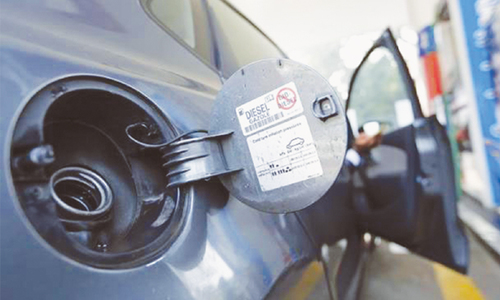ISLAMABAD: The Oil and Gas Regulatory Authority (Ogra) and the oil industry have sought postponement of the manganese phase-out plan for local refineries for at least six months to allow the completion of an independent study.
The government had decided in the first week of August to implement the manganese phase out for imported petrol as planned but ordered an independent study to conclude if local refineries really required time to upgrade and for how long.
A committee comprising Ogra and the Oil Companies Advisory Council (OCAC) was constituted to get a study done by an independent consultant. The Ogra member oil and OCAC’s chief executive finalised terms of reference and invited bids from three local consultants — Enar Petrotech, Zishan Engineers and Energy Enterprise Associates.
Two consultants — Enar and Zishan — met the technical criteria. One of them sought 6 months and the other 6-8 months to complete the study. On October 11, the committee reported to the Petroleum Division of the Ministry of Energy that its deadline of completing the study by end-October was not possible in any case and the consultants should be given 6-8months to submit a report on the way forward.
The committee also asked the government to hold in abeyance its order of May 24, 2018 to reduce manganese content in petrol to 40 milligram per litre until March 1, 2019 instead of November 1, 2018. The Petroleum Division is expected to take a decision on the recommendations of the committee on Tuesday (today).
Earlier, the Petroleum Division had resisted a change in the phase-out plan. It had told the oil industry that the timeline for phasing out metal contents in all the production line of petrol (90RON, 92RON, 95RON and 97RON) was finalised in consultations spread over six months with the industry and then notified in May this year and had ordered Hydrocarbon Development Institute of Pakistan (HDIP) to start testing metal content in all grades (RON) of imported petrol arriving after August 1.
The industry was informed that import of motor gasoline will not be permitted containing more than 24mg per litre after October 30, 2018 and till April 30, 2019 and then be completely banned. For local petrol, the Ogra and HDIP will conduct a study through an independent consultant and submit the report encompassing local refineries issues emanating due to implementation of phase-out plan.
From November 1, 2018 and till April 30, 2019, the limit of manganese in 95 and 97 Ron imported petrol will be set at 10mg per litre which will then be banned. Pakistan did not have standards for metal contents until a complaint by Honda Pakistan when it was noted that petrol being sold in the market contained 54-96mg per litre.
The oil industry had been resisting implementation of notified specifications for lower manganese content in petrol, saying it required additional investments and time to enable the industry for a phase-out plan.
The Petroleum Division had introduced fresh specifications for manganese and iron content in petrol in May this year after automakers, particularly Honda Pakistan, complained about choking of some of their engines due to higher manganese in petrol. It emerged later that Pakistan did not have any limits for manganese content in any type of petrol.
The oil industry had complained that local production of motor gasoline would reduce by 138,000 tonnes per year (11500 tonnes per month) and simultaneously increase naphtha production by 102,000 tonnes per year (8,500 tonnes per month) that would need to be exported, causing infrastructure constraints. The industry said the schedule was “not implementable” because reduction in petrol production and increase in naphtha production would force the refineries to reduce throughput, impacting the production of other petroleum products as well.
These factors would lead to “additional import of Euro II motor gasoline as well as additional exports of surplus Naphtha, thereby burdening the already congested and overburdened import infrastructure at Keamari and Port Qasim”.
The OCAC had called upon the government to continue with limit of 54 mg per litre of manganese content till such time that local refineries are able to upgrade their hardware to a configuration that allowed production of petrol with higher RON and consequent reduction in manganese dosage.
From a technical standpoint, manganese compromises engine performance in the long run, chokes catalytic converter of the vehicle and aggravates pollution level by not converting unsafe substances of the exhaust. It has been in use in Pakistan since 2002 when the government moved to single unleaded petrol grade of 87 RON.
Published in Dawn, October 30th, 2018













































